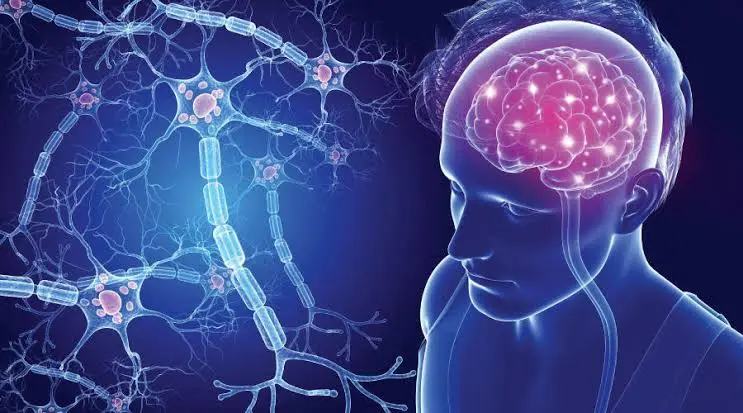Parkinson is a genetic disease

If you tested your DNA with a personal genomics service like 23andMe, AncestryDNA, FamilyTreeDNA, MyHeritage or another testing company, you can learn more about your risk factors for hundreds of diseases. By clicking the button above ⬆️, you can upload your raw DNA data file and receive a personalized 250-page health report with research links that is the most comprehensive.
A disorder that progresses gradually within the nervous system is known as Parkinson's disease. It impacts several parts of the brain, primarily a region referred to as substantia nigra which governs movement and balance.
The beginning manifestation of Parkinson's disease is often depicted through the trembling or shaking (tremor) of a limb, most commonly observed at rest. This tremor typically initiates on one side of the body, frequently in one hand; however it can also affect other parts such as arms, legs and face. Additional indications defining Parkinson’s are stiffness or rigidity within limbs and torso areas alongside slow movement (bradykinesia), incapability to move (akinesia) accompanied by impaired balance and coordination leading towards postural instability. These symptoms gradually worsen with time elapsed from onset.
Approximately 10% to 15% of Parkinson's cases are attributed to genetics. In particular families, specific genes undergo alterations or mutations that get passed down from one generation to the next. Certain ethnic groups like Ashkenazi Jews and North African Arab Berbers have a higher prevalence of PD-linked genes, although researchers still require further comprehension on this phenomenon.
Irrespective of the cause, whether it be genetics or environmental factors or a mix of both, individuals diagnosed with Parkinson's disease will undergo a decrease in dopamine levels within their brain. Furthermore, they'll experience symptoms specific to themselves and observe how their ailment progresses over time.
Gene alterations (mutations) have been discovered by scientists that can raise the likelihood of Parkinson's illness. The presence of a mutation in a Parkinson's gene does not automatically imply that an individual will develop PD if they test positively for it. Certain individuals who possess mutations related to Parkinsonism genes such as LRRK2and GBA never contract PD nonetheless.
Although a hereditary genetic mutation that heightens the likelihood of developing Parkinson's disease can be passed down to an individual, this risk factor may potentially be counterbalanced by various other inherited genes, environmental exposures or personal lifestyle choices. Currently, several gene tests exist for detecting mutations connected with Parkinson’s - these include GBA, LRRK2, PRKN SNCA PINK1 PARK7 and VPS35.
Follow the link of the selected polymorphism to read a brief description of how the selected polymorphism affects Parkinson's disease and see a list of existing studies.
SNP polymorphisms related to the topic Parkinson's disease:
| rs287235 | Variation in ubiquitin-specific protease USP24 as a candidate gene for late-onset Parkinson's disease. |
| rs11248051 | Variation in GAK, one of the susceptibility genes for familial Parkinson's disease. |
| rs1994090 | The SLC2A13 polymorphism is a significant genetic component for Parkinson's disease. |
| rs823156 | The rs823156 polymorphism is associated with a reduced risk of Parkinson's disease. |
| rs4698412 | The rs4698412 BST1 allelic variant increases the risk of gait or balance disorders in patients with Parkinson's disease. |
| rs12456492 | The RIT2 rs12456492 polymorphism is associated with Parkinson's disease. |
| rs3129882 | The HLA-DRB1 allele variant is associated with susceptibility to sporadic Parkinson's disease. |
| rs11248060 | The DGKQ rs11248060 polymorphism increases the risk of Parkinson's disease in the population. |
| rs1559085 | The CAST polymorphism is associated with susceptibility to familial Parkinson's disease. |
| rs2736990 | SNCA rs2736990 variants are associated with a twofold increased likelihood of Parkinson's disease. |
| rs4538475 | Slightly increased risk of developing Parkinson's disease. |
| rs6812193 | SCARB2 gene expression as an essential genetic component for Parkinson's disease. |
| rs947211 | Polymorphisms in genes associated with neurodegeneration are associated with Parkinson's disease risk. |
| rs199533 | NSF replication carries a genetic risk underlying Parkinson's disease. |
| rs35870237 | Mutations in the LRRK2 gene cause autosomal dominant parkinsonism with onset at an older age and good response to levodopa therapy. |
| rs33939927 | Mutation in LRRK2 causes autosomal dominant parkinsonism with pleomorphic pathology. |
| rs34805604 | Mutation in LRRK2 causes autosomal dominant parkinsonism with pleomorphic pathology. |
| rs35801418 | Mutation in LRRK2 causes autosomal dominant parkinsonism with pleomorphic pathology. |
| rs35808389 | Mutation in LRRK2 causes autosomal dominant parkinsonism with pleomorphic pathology. |
| rs3761863 | Missense LRRK2 variant is a risk factor for Parkinson's disease. |
| rs7133914 | Missense LRRK2 variant is a risk factor for Parkinson's disease. |
| rs7308720 | Missense LRRK2 variant is a risk factor for Parkinson's disease. |
| rs74163686 | Missense LRRK2 variant is a risk factor for Parkinson's disease. |
| rs78365431 | Missense LRRK2 variant is a risk factor for Parkinson's disease. |
| rs34778348 | LRRK2 variant is a risk factor for sporadic Parkinson's disease |
| rs34995376 | LRRK2 mutation associated with the development of Parkinson's disease (6.5-fold increased risk) and progressive supranuclear palsy. |
| rs33949390 | LRRK2 G2385R variant is a risk factor for sporadic Parkinson's disease in the population (3.3-fold increased risk). |
| rs11176013 | Low levels of LRRK2 gene expression contribute to the progression of Parkinson's disease. |
| rs11564148 | Low levels of LRRK2 gene expression contribute to the progression of Parkinson's disease. |
| rs421016 | Known as L444P or Leu444Pro, is a SNP causing an amino acid change in the GBA gene. It is one of the most common mutations associated with a risk of Gaucher disease and at least 5 times the risk of Parkinson's disease. |
| rs2102808 | Increased risk of Parkinson's disease at a young age. |
| rs242557 | High levels of cerebrospinal tau are associated with the rs242557 gene variant and a high risk of Parkinson's and Alzheimer's disease. |
| rs393152 | Genetic risk underlying Parkinson's disease. |
| rs11868035 | Causes increased plasma free fatty acids, predisposing to early cognitive impairment in type 2 diabetes mellitus. |
| rs823128 | Association of the rs823128 polymorphism with reduced risk of Parkinson's disease. |
| rs356219 | Alpha-synuclein gene polymorphism is associated with an increased risk (1.3-fold) of Parkinson's disease. |
| rs11931074 | A study involving 45,078subjects confirms an association between SNCA alpha-synuclein alpha rs11931074 and Parkinson's disease. |
| rs356220 | A single SNCA rs356220 polymorphism is directly associated with Parkinson's disease and plasma alpha-synuclein levels. |
| rs283413 | A rare truncating mutation in ADH1C shows a significant association with Parkinson's disease in a large international sample. |
| rs112176450 | A rare EIF4G1 mutation causes an 8-fold increase in Parkinson's disease. |
| rs4998386 | A polymorphism in the NMDA glutamate ionotropic receptor type 2A subunit 2A (GRIN2A) gene causes at least a 5-fold higher risk of Parkinson's disease when interacting with caffeine. |
| rs10513789 | A new locus of increased risk for Parkinson's disease. |
| rs6599389 | A new locus in the TMEM175 gene for Parkinson's disease risk. |
| rs34637584 | A frequent mutation of the LRRK2 gene associated with autosomal dominant Parkinson's disease. |
| rs281865052 | A common missense variant in the LRRK2 gene associated with risk of Parkinson's disease (6.5-fold increased risk). |
| rs281865054 | A common missense variant in the LRRK2 gene associated with risk of Parkinson's disease (6.5-fold increased risk). |
| rs34410987 | A common missense variant in the LRRK2 gene associated with high risk of Parkinson's disease. |
| rs838552 | A break in the USP40 gene increases the risk of late-onset Parkinson's disease. |
| rs34594498 | A break in the LRRK2 gene is associated with essential tremor and Parkinson's disease. |
| rs35095275 | |
| rs775129424 | |
| rs66737902 | |
| rs1442190 | |
| rs1630500 | |
| rs17577094 | |
| rs7971935 | |
| rs3889917 | |
| rs3775442 | |
| rs2619369 | |
| rs1866995 | |
| rs2846468 | |
| rs12174214 | |
| rs2849518 | |
| rs7454474 | |
| rs10918270 | |
| rs1941184 | |
| rs2395163 | |
| rs9917256 | |
| rs12726330 | |
| rs2275336 | |
| rs11026412 | |
| rs7617877 | |
| rs6430538 | |
| rs12063142 | |
| rs199515 | |
| rs6532194 | |
| rs12431733 | |
| rs34372695 | |
| rs12185268 | |
| rs8070723 | |
| rs11711441 | |
| rs183211 | |
| rs10464059 | |
| rs6532197 | |
| rs2242330 | |
| rs10519131 | |
| rs2723264 | |
| rs11564187 | |
| rs4912537 | |
| rs117499775 | |
| rs2435203 | |
| rs12947764 | |
About The Author
Li DaliLi Dali, a National Foundation for Outstanding Youth Fund recipient, is a researcher at the School of Life Sciences in East China Normal University. He earned his PhD in genetics from Hunan Normal University in 2007 and conducted collaborative research at Texas A&M University during his doctoral studies. Li Dali and his team have optimized and innovated gene editing technology, leading to the establishment of a world-class system for constructing gene editing disease models.


